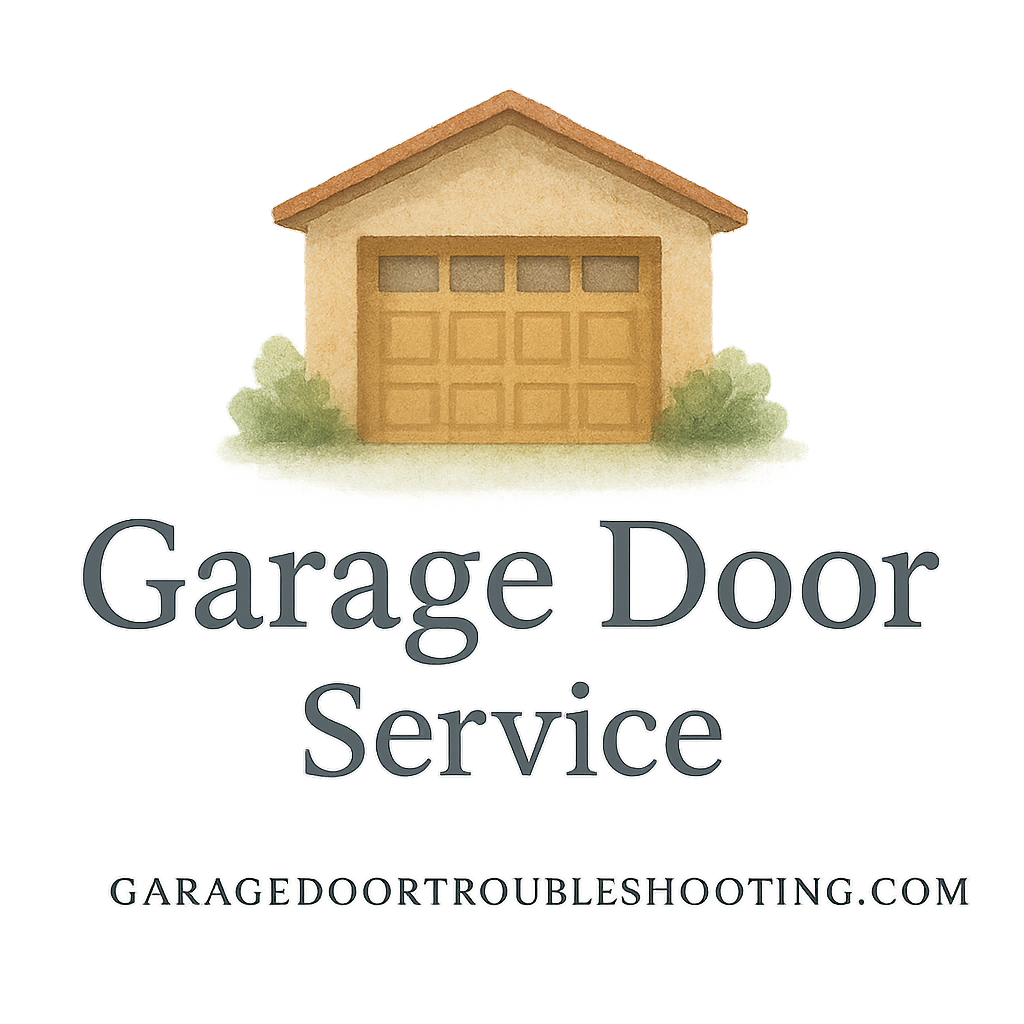Why Cleaning Your Garage Door Matters
Let’s be real—most homeowners forget about cleaning their garage door until it starts acting up. But here’s the thing: cleaning isn’t just about making it look pretty. Dirt, grime, and buildup can actually cause real damage to the moving parts of your garage door, leading to costly repairs. A little routine cleaning goes a long way toward preventing rust, extending the life of your door, and avoiding frequent garage door repairs.
Common Problems from a Dirty Garage Door
Dirt and Debris Causing Mechanical Issues
When dirt and dust pile up on tracks and rollers, your garage door doesn’t glide smoothly anymore. That grinding noise? It’s your door screaming for a cleaning.
Rust and Corrosion on Metal Doors
Metal garage doors look sleek, but they’re prone to rust if you neglect cleaning. Rust weakens the door’s structure and makes it harder for the opener to do its job.
Mold and Mildew on Wooden or Vinyl Doors
Wooden and vinyl doors are not safe from grime either. Mold and mildew love damp garage spaces, and once they set in, your door’s finish and integrity can take a hit.
Essential Tools and Materials for Garage Door Cleaning
Safe Cleaning Supplies You Should Use
Forget harsh chemicals—mild soap, warm water, and a sponge do wonders. For stubborn spots, white vinegar or baking soda is a safe option.
Tools to Make Cleaning Easier
Keep a bucket, microfiber cloths, soft brushes, and a garden hose handy. For deeper cleaning, a handheld vacuum helps clear tracks without hassle.
Cleaning Tip #1: Regular Surface Washing
A clean door surface doesn’t just look great; it prevents buildup that could cause paint to chip or metal to corrode.
How Often Should You Wash Your Garage Door?
At least once every three months is ideal. But if you live near the coast or in a dusty area, monthly washes can prevent salt and dirt damage.
Cleaning Tip #2: Removing Rust and Corrosion Early
Don’t wait until rust eats through your garage door. A quick scrub with vinegar and a wire brush can stop corrosion from spreading. Afterward, touch up with paint to seal the surface.
Cleaning Tip #3: Cleaning Tracks and Rollers
Tracks and rollers are like the highways for your garage door. If they’re full of dirt, your door won’t move smoothly.
Why Tracks Collect Dust and Grease
Grease attracts dirt like a magnet. That buildup then clogs rollers, making them stick. Wipe tracks down with a damp cloth and vacuum out loose dirt regularly.
Cleaning Tip #4: Wiping Down Weather Stripping
That rubber seal at the bottom of your garage door? It keeps pests, water, and dirt out. But when it gets filthy, it cracks faster. Wipe it with mild soap and keep it flexible with a silicone spray.
Cleaning Tip #5: Clearing Debris Around the Door
Leaves, rocks, and small sticks can jam your garage door if they pile up near the base. Make sweeping around your door part of your routine yard cleanup.

Cleaning Tip #6: Cleaning Windows and Panels
If your garage door has windows, don’t forget them! Use a glass cleaner for clear visibility and a neat appearance. Dirty panels can be wiped down with a damp cloth.
Cleaning Tip #7: Power Washing with Caution
Power washers make life easy but don’t go overboard. A low-pressure wash works wonders, but high pressure can strip paint or crack panels.
Cleaning Tip #8: Using Mold and Mildew Cleaners
Mold creeping up your garage door isn’t just ugly—it’s unsafe. Use a diluted bleach solution or specialized cleaner to get rid of it. Just rinse thoroughly afterward to protect the finish.
Cleaning Tip #9: Lubricating After Cleaning
Cleaning is step one; lubrication is step two. Once everything’s clean, apply garage door lubricant to hinges, springs, and rollers. This keeps everything moving smoothly and reduces wear.
Cleaning Tip #10: Seasonal Deep Cleaning Routines
Every spring and fall, give your garage door a complete cleaning. Think of it as spring cleaning but for your door—inside, outside, and all moving parts.
DIY Cleaning vs. Professional Cleaning
When to Call a Professional Service
Sure, DIY works, but if your garage door is old, oversized, or has severe rust, call a professional garage door service. They’ve got the tools and expertise to clean safely and spot early repair needs.
Safety Precautions During Garage Door Cleaning
Avoiding Dangerous Repairs During Cleaning
Never mess with garage door springs while cleaning. They’re under high tension and can cause serious injury. For these risky parts, check dangerous repairs tips before even thinking about DIY.
Linking Cleaning with Maintenance Plans
Creating a Preventive Maintenance Plan
Pairing cleaning with a garage door maintenance plan ensures your door stays in top condition. Set a calendar reminder for quarterly cleaning and yearly inspections.
Long-Term Benefits of Keeping Your Garage Door Clean
Saving Money on Repairs
Spending an hour scrubbing your garage door could save you hundreds on garage door repair costs. Prevention beats cure every time.
Extending Door Longevity
A clean, well-maintained garage door lasts years longer. It’s the difference between replacing a door every 10 years versus every 20.
Conclusion
Cleaning your garage door isn’t glamorous, but it’s one of the easiest ways to avoid frequent repairs. With just a few hours a year, you can prevent rust, mold, debris, and mechanical issues from sneaking up on you. Combine these cleaning tips with regular inspections, and your garage door will serve you smoothly for years.
FAQs
- How often should I clean my garage door to avoid repairs?
At least every three months, but more often if you live near the ocean or in dusty areas. - Can I use a pressure washer on my garage door?
Yes, but keep the setting low to avoid stripping paint or damaging panels. - What’s the best cleaner for mold on a garage door?
A diluted bleach solution or mold-specific cleaner works well—just rinse thoroughly. - Should I lubricate garage door parts after cleaning?
Absolutely! Lubrication after cleaning helps prevent wear and keeps movement smooth. - Is it safe to clean garage door springs myself?
No, springs are dangerous. Leave them to professionals to avoid accidents. - Do professional services include cleaning as part of maintenance?
Yes, many professional providers include cleaning in their maintenance contracts. - What’s the biggest benefit of regular garage door cleaning?
It saves money on repairs, prevents breakdowns, and extends the life of your garage door.


